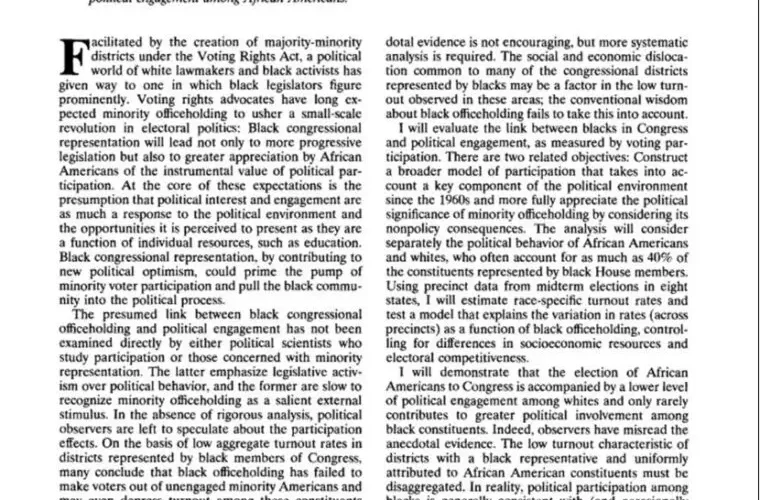Harvard President Claudine Gay will resign on Tuesday afternoon in the wake of a slew of controversies ranging from plagiarism accusations to Congressional remarks that downplayed rising anti-Semitism on college campuses in conjunction with the Hamas-Israel War.
The Harvard Crimson, a college publication, reported on the news on Tuesday.
Harvard President Claudine Gay will resign Tuesday afternoon, bringing an end to the shortest presidency in the University’s history, according to a person with knowledge of the decision.
It is not clear who will be appointed to serve as interim president.
University spokesperson Jonathan L. Swain declined to comment on Gay’s decision to step down.
Gay’s resignation — just six months and two days into the presidency — comes amid growing allegations of plagiarism and lasting doubts over her ability to respond to antisemitism on campus after her disastrous congressional testimony Dec. 5.
Gay weathered scandal after scandal over her brief tenure, facing national backlash for her administration’s response to Hamas’ Oct. 7 attack and allegations of plagiarism in her scholarly work.
The Corporation — the University’s highest governing body — is expected to announce the resignation to Harvard affiliates in an email later today. Gay is also expected to make a statement about the decision.
The announcement comes three weeks after the Corporation announced unanimous support for Gay after “extensive deliberations” following the congressional hearing.
Claudine Gay recently came under fire for her awkward response to Congressional questioning over pro-Hamas demonstrations on college campuses like Harvard University.
[embedded content]
“At Harvard, does calling for the genocide of Jews violate Harvard’s rules of bullying and harassment?” Stefanik asked.
“It can be, depending on the context,” Gay responded.
Her remarks contradicted the doctrine of creating “safe spaces” for college students to explore ideas without being personally threatened. Gay’s weak defense of equal rights for Jewish students led to a half-hearted apology in the Harvard Crimson.
“I am sorry,” Gay said in an interview with The Crimson. “Words matter.”
“When words amplify distress and pain, I don’t know how you could feel anything but regret,” Gay added.
But Gay’s remarks only bely a deeper issue with her appointment to lead the nation’s most prestigious institute of higher learning: Her academic credentials are extremely dubious.
Indeed, Gay indeed has plenty of ‘privilege’ when it comes to her academic record; particularly, she has faced serious accusations of plagiarism that would certainly land a scholar of an ‘unprotected class’ in deep trouble, if not exiled from top universities.
Dr. Carol M. Swain, a political scientist who happens to also be a black woman, accused Gay of lifting passages from her research. Additionally, the Harvard president is credibly accused of copying passages from the work of several other academics for her doctoral dissertation and three scholarly articles.
However, Harvard University, after a purported investigation into the matter, closed the case by labeling Gay’s infractions as “inadequate citations” but with “no evidence of intentional deception… or research misconduct.”
Beyond the plagiarism accusations, however, there is a deeper questioning of the merit of her academic research. A 2001 paper published in the American Political Science Review entitled ‘The Effect of Black Congressional Representation on Political Participation’ is listed as one of four peer-reviewed political science articles that secured her tenure at Stanford University.
The research paper attempts to test the hypothesis that “the election of blacks to Congress negatively affects white political involvement and only rarely increases political engagement among African Americans.”
Jonathan Pallesen, who is not a political scientist but possesses a PhD. in statistical genetics, examined the data provided by Claudine Gay.
Claudine Gay wrote two times about the hypothesis that Black representation causes lower voting turnout among Whites.
There are odd differences between the two works.
Originally she looked at it in her PhD thesis, and then she redid the analysis in a 2001 APSR paper. In the… pic.twitter.com/0oHgwjjZsD
— Jonatan Pallesen (@jonatanpallesen) December 26, 2023
Pallesen uncovers an unexplained disclusion of statistics for Illinois, which appear to contradict her hypothesis.
“At the bottom of the table, there are three data points which go against the hypothesis, and instead have larger White turnout in the districts with Black representatives,” he points out in reference to her PhD. thesis.
“But then in her APSR paper: Illinois disappeared! Why were the results from Illinois not included, when they were included in the PhD thesis?” he asks.
“If we look again at the table for the results from the thesis, two out of the three results that go against the hypothesis are in Illinois,” he continues. “The ASPR paper doesn’t mention any specific reason for why Illinois was excluded.”
Two professors also shredded Gay’s PhD. thesis for “logical inconsistencies,” as reported by the New York Post. They noted that Gay refused to release the data underpinning her thesis.
“We were, however, unable to scrutinize Gay’s results because she would not release her dataset to us,” the researchers noted in their 2002 paper.
DEI hires like Claudine Gay have exposed the intellectual rot that has proceeded due to academia’s Woke activism. It has wrought a cultish ideology that is incompatible with excellence in academic standards, in addition to being harmful for personal accountability and intellectual integrity.
Claudine Gay became the poster woman for the spectacular failure of DEI. Now, let us hope that Gay’s firing begins a new era of academic and personal accountability in the nation’s universities.

